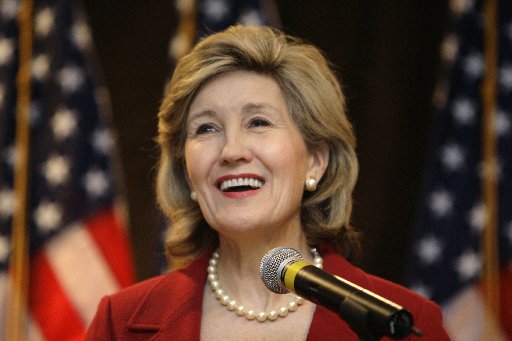It wasn’t supposed to be like this. U.S. Sen. Kay Bailey Hutchison, who had repeatedly postponed her gubernatorial ambitions while fellow Republican Rick Perry became the longest-serving governor in Texas history, figured it was her turn at the job. Hubby Ray, after all, had tried for it in 1978 but lost the Republican nomination to Dallas moneybags Bill Clements, who became the first Republican governor in Texas since just after the Civil War.
 Hutchison reportedly thought she needed a gubernatorial merit badge to win a spot on a presidential ticket. Four of the last five presidents had been governors — Democrats Jimmy Carter and Bill Clinton, and Republicans Ronald Reagan and George W. Bush. The only other one — George H.W. Bush — had been vice-president.
Hutchison reportedly thought she needed a gubernatorial merit badge to win a spot on a presidential ticket. Four of the last five presidents had been governors — Democrats Jimmy Carter and Bill Clinton, and Republicans Ronald Reagan and George W. Bush. The only other one — George H.W. Bush — had been vice-president.
Hutchison thought her re-election in 2006, with the most votes ever for a statewide public official in Texas, showed universal strength. But that was as an incumbent, not against one.
She hadn’t been seriously tested since 1993, when she first took the senate seat in a special election. Even then, she was blessed with statewide name identification, from running for and winning the state treasurer’s office in 1990, while two GOP congressmen learned the hard way that being hot stuff in one congressional district and in Washington doesn’t translate into statewide popularity.
In the runoff with Democrat Bob Krueger, the interim senator appointed by then-Gov. Ann Richards, Hutchison was blessed that Krueger ran probably the worst political campaign in recent Texas history. He wasn’t helped by trying to be the new senator while campaigning for the job, nor by the fact that the public was quickly souring on new Democratic President Bill Clinton.
In Hutchison’s first election for a full term in 1994, again it was a very bad year for Democrats, because of Clinton, gays in the military, healthcare, and a huge battle over gun control.
Her timing for her 2000 re-election was lucky, with then-Texas Gov. George W. Bush heading the ticket for president.
Hutchison thought about challenging Perry in 2002, which caused Perry to rush around the state like a mad fool in early 2001, while the legislature was in session. He also pressured Republican money folks to talk Hutchison down. It worked, and she took herself out of the race in mid-March — and Perry returned to the capitol for the last couple of months of the legislative session.
Approximately the same thing happened leading up to 2006. One difference was that Hutchison’s senate seat was up for election, and Perry reportedly led his backers and hers to think it would be his last run. So Hutchison bided her time in the name of avoiding a costly and divisive intra-party fight.
Then, about 2008, it dawned on her that Perry’s talk of yet another four-year term wasn’t just jawboning to avoid being a lame duck. He was serious.
Hutchison then proceeded to run one of the worst campaigns in Texas history. “Texas on the Potomac,” the blog run by Richard Dunham and the Houston Chronicle’s Washington bureau, ranked hers the third-worst of all time — behind Krueger’s 1993 special election race against Hutchison and Republican Claytie Williams’ infamous implosion against Richards in the 1990 governor’s race.
Among her mistakes and disadvantages, not including the Perry campaign’s whoopee-cushion approach to lampooning her:
• She never found a compelling message, other than her own ambition, to explain why Republicans should fire Perry as governor and hire her. While she criticized Perry in some areas, she offered few concrete things she would do differently.
• The campaign was micro-managed from the top.
• Perry had staked out the right wing in the Republican primary, so that Hutchison’s efforts to define herself as the conservative in the race rang hollow. After all, on abortion, she was vaguely pro-choice — in favor of a woman’s right to choose early in a pregnancy whether to carry it to term, but against the government paying for abortions — while Perry was hard-core against abortion.
• Perry successfully capitalized on the national anti-Washington mood, portraying Hutchison as Washington personified. (Perry sounded almost like Iranian President Mahmoud Ahmadinejad describing Washington as The Great Satan.)
• Her wishy-washiness on whether and when she would resign her senate seat left her looking ambivalent. If she couldn’t decide on that, how could voters figure out what she would do on anything?
• Anti-government Tea-Partier Debra Medina stole attention from Hutchison.
And so it ended.
Now she is telling her supporters to vote for Perry in November against Bill White. And Perry, who spent several months blasting her performance in Washington, says she should stay there.
Ah, Texas politics.
Veteran Texas political reporter Dave McNeely can be reached at davemcneely111@gmail.com.











